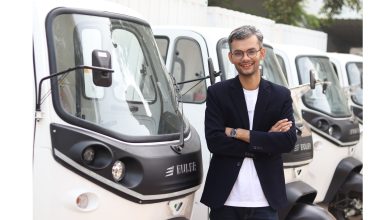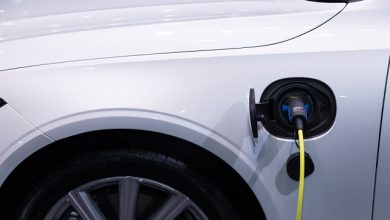The electric vehicle is an emerging opportunity for India

Telematics Wire spoke to Mr. Nishant Arya, Executive Director, JBM Group about the emerging opportunities in electric vehicle segment in India. Below are the excerpts from the conversation-
What are your views about the road ahead for electric bus manufactured by JBM? What’s the near-term outlook for the automotive sector in general?
India is swiftly catching up in the e-mobility space, and given its potential, is all set to be largest EV market globally. Under FAME-II, the Indian government has outlined a spending of Rs 10,000 crore and Rs.1,000 crore has been earmarked for deployment of charging infrastructure from 2019 to 2022. The government’s proposal to set up a National Mission on Transformative Mobility and Battery Storage to promote clean & connected technology shall provide impetus to a sustainable EV infrastructure in India. JBM is a one-stop solution provider in the Electric Vehicles segment as we provide a complete ecosystem solution for E-mobility i.e. Electric Bus, Battery Technology, Charging Infrastructure based on the Operating Pattern within the city. In our endeavour to contribute towards a cleaner future, we have launched this ‘’Well to Wheel’’ concept of e-mobility. Starting from energy generation to energy consumption, we provide end-to-end solutions. The first step in this direction was the launch of the 100% electric bus, ECOLIFE. ECO-LIFE, a Zero Emission Vehicle (ZEV). It saves the equivalent of around 1,000 tonnes of carbon dioxide and 350,000 litres of diesel over 10 years of its operations. This is a huge evolution from how public transportation operates in India.
The Indian auto industry has been preparing to align itself with the transition to BS VI and had aptly scheduled production and inventory to suit the given deadlines. Infact, India has been the fastest in transitioning to BSVI only in a period of 3 years. Auto OEMs have done a remarkable job in achieving a higher level of localization for vehicles than anticipated which is slated to enhance further in the near future. However, with the unforeseen slowdown of activity due to COVID19 thereby directly impacting the sales of vehicles, there still are unsold inventories lying with OEMs and dealers. Companies have approached the govt. to provide some relief in the form of deadline extension to see through such unsold inventory that will also result in reduction of losses at the dealers’ end. The Supreme Court has given marginal relief in the form of few days extension post lockdown for sale of 10% of BS-IV unsold inventory, which needs to be extended further considering the volume of unsold BS-IV stock at hand i.e. 12,000 commercial vehicles, 15,000 passenger vehicles and over 7 lac 2 wheelers. On the other hand, post the lockdown phase, the offtake will be slow resulting in low sales due to the trapped liquidity and also, because the cost of vehicles will rise due to shift to BSVI. The performance of the auto sector in FY20 compared to FY19 has not been very promising in itself due to the already ongoing slowdown with commercial vehicles going down by 30%, passenger vehicles segment down by 18%, 3W down by 18% and 2W by 10% approximately. Now with the lockdown getting extended further, the pain points of the industry that has been reeling through bad times for more than one and a half year now, need to addressed by the govt. with much more solidarity. The volume of total sales in FY20 has been around 21 mln vehicles and FY 21 could witness going down further by 20-25% as a sector due to COVID wherein the maximum impact will be coming in H1FY21, whereas H2 will see some recovery happening. With this setback of sales by 20-25% the auto sector demand will go back by at least by 8-9 years in this FY21.
Will the crude oil price fluctuation impact the government push for electric vehicle?
The Electric Vehicle segment is an emerging opportunity area for India. Having gone through the lockdown phase, people are now more focused towards their health, safety and environmental sustainability. The lockdown has had a positive impact on the environment and climate with air and water getting cleaner and fresher, which needs to be sustained. Thus, as responsible citizens and corporates, focus will be more on new technologies such as electric vehicles. Various govt. schemes that were announced in the recent past, such as the PMP, the Phased Manufacturing Programme will stand beneficial to promote localization by way of collaboration between the various EV and EV ecosystem players, thereby reducing the dependence on imports.
Will the current situation lead to reduction in R&D spend by JBM?
Further to our focus towards the electric vehicle segment and development of charging solutions & technologies inhouse, JBM Auto had announced an investment plan to the magnitude of Rs. 500cr in a 3-year phase that started last year. The plan is well on track. As on date, Rs. 200 cr has already been invested in this business, the result of which has been our new product, the e9 ECOLIFE electric bus and the EV charging business that took off last year.
Will there be shift in buying pattern/behaviour by the public transport companies?
India’s ‘one size fits all’ approach may not work in the case of EVs. Products and solutions in the EV domain have to be consciously customized to suit the demands and usage patterns across various geographies or our country. I believe that the public transportation segment in India is best suited to embrace EVs at a much faster pace. Commercial vehicles, more importantly in public transportation, have been witnessing deployment of e-vehicles at a much-preferred pace. The industry is working towards developing products that are not only 100% electric but also autonomous and connected. Pressing concerns like the depleting fossil fuels, global warming, vehicular pollution in metropolises, etc. have spurred many economies to look for more cost-friendly and better alternatives to fuel the transportation of the future. JBM ECO-LIFE electric buses can run between 125-150 kms on a single charge, depending on the city’s traffic conditions, which is an ideal range for intracity buses.
Do you think favourable policy can spur the growth in demand for automotive products? Will vehicle scrappage policy (yet to be announced) be a game changer in Indian context?
It is a given fact that the impact of COVID19 is going to have adverse effect on all businesses globally, but with the apt support from the government, resumption of activities can be smoother. In case of the auto sector which contributes more than 50% of national manufacturing GDP, the govt. needs to introduce special measures to bail the sector out of this phase. Countries such as Germany, USA, Japan, etc. have already announced steps such as tapping of insurance funds guaranteeing workers a minimum of 60% of their basic pay, income support for families of $1200 for adults and $500 for children, cash pay-out of $928 to all citizens, etc. We anticipate the Indian government come up with such measures as well. Like in 2008-09, the govt. had reduced excise duty in the auto sector, now it may introduce a reduction of GST from 28% to 18%. The months of April and May are going to fetch no revenues for OEMs, in such a scenario, the workers’ salary may be paid out through various funds like ESIC for a brief period of time so as to de-burden OEMs to some extent. For goods and raw material that has been already imported, eliminating demurrage charges for priority sector projects can be a viable step. Immediate relaxation by extension of the moratorium on interest payment and easing the burrowing norms and statutory payments can help us tide through the crisis. Taking a cue from global measures, subsidizing manpower cost with prime focus on blue collar jobs to aid workers can reduce the impact of downturn to some extent.

Any other point which you would like to highlight or share your views on.
The pandemic has hit the world severely, yet I believe that it will have a positive impact considering the bilateral ties between India and Japan, Korea, and the USA. Japan has already announced a $2billion investment package for companies to move out of China. The Make in India programme is sure to gain increased momentum with the inflow of foreign companies, thereby, strengthening the manufacturing capabilities inhouse and India well-positioned in becoming the contract manufacturer for the world. The government can come up with new tax brackets to promote new companies to invest in India in sectors such as automobiles, textiles, high-tech manufacturing, EVs, etc. The Electric Vehicle segment is another opportunity area for India. Having gone through the lockdown phase, people are now more focused on their health, safety, and environmental sustainability.
Learnings for companies from the pandemic?
Making the organization agile for such testing times holds the key to sustain and sail through the current situation. At JBM, we are moving very swiftly towards incorporating Artificial Intelligence and Machine Learning across our manufacturing facilities that will not only aid in a smoother resumption of operations post the lockdown, but also sustain a safe and healthy working environment for our employees. We are in regular touch with all our stakeholders to ensure seamless communication. The aim is to maximize and capitalize on JBM Group’s inherent strengths and capabilities to minimize the impact of COVID on business, customers, suppliers, and our employees.
Published in Telematics Wire





